Gomorrha | Interview | “I Try To Change This World”
Gomorrha started as a psychedelic pop band. They were from the northern Rhineland. The band formed in early 1969, and soon taken under the wing of legendary Conny Plank. The band split up in 1973.
The band released three albums. Their second, ‘Trauma’ is basically the re-recorded version of the eponymous debut album with English vocals. The album includes the long title track which was a true magnus opus, full of spectacular effects and electronics, mixing freaky rock with abstract sound collages. Produced by Conny Plank who’s career pretty much took off with producing Gomorrha.
“We just met out of the pure pleasure to make music.”
How did you first get interested in music?
Adalbert Ochel: When I was six years old I got piano lessons for a period of ten years. I had to practice every day for one up to 1 ½ hours although I sometimes didn’t feel like it… I had to sit down at the piano often late in the evening and had to do finger exercises. They gave me as a present a small children accordion on which I played ‘Lustig ist das Zigeunerleben’.
Where and when did you grow up? Was music a big part of your family life?
I was born in 1938 in Bergneustadt in the Rheinland in the Oberbergischem Kreis and my parents played music as well. My mother played the piano and my father played the violin. For this reason sometimes house concerts happened in our place and when we had guests I always had to play something on the piano to them even if I felt very ashamed. The applause was despite several mistakes always enormous.
What bands were you a member of prior to the formation of Gomorrha?
When I was a pupil in grammar school I founded my first jazz band and we played on school celebrations and school leaving examination parties. After that I played for a few years in a Dixieland band the clarinet and the piston.
What kind of music did you play very early on?
On the piano I preferred Bach, Pepping, Bartok, Mozart, Beethoven…. Beside I tried to play blues, swing and modern. I was listening to Dave Brubeck with Paul Desmond and their lyrical improvisations.
Can you elaborate on the formation of Gomorrha? What was the main concept behind Gomorrha?
Several years later I was in hospital and heard for the first time the Beatles. After hearing ‘She Loves You’ and ‘A Hard Day’s Night’ I knew that this is it! This is what I want to do too, to play your own songs! At the time I was employed in an architecture office in Cologne by a very well known church builder and in this office I got to know jazz pianist Eberhard Krietsch and we both founded Gomorrha. We experimented with different musicians for drums and guitar. Slowly I wrote first love related lyrics… lyrics to my wife written in a small pamphlet: “Lieder an Elke”. I tried to design phonetically easy to sing syllables, of course without means and disastrous equipment.
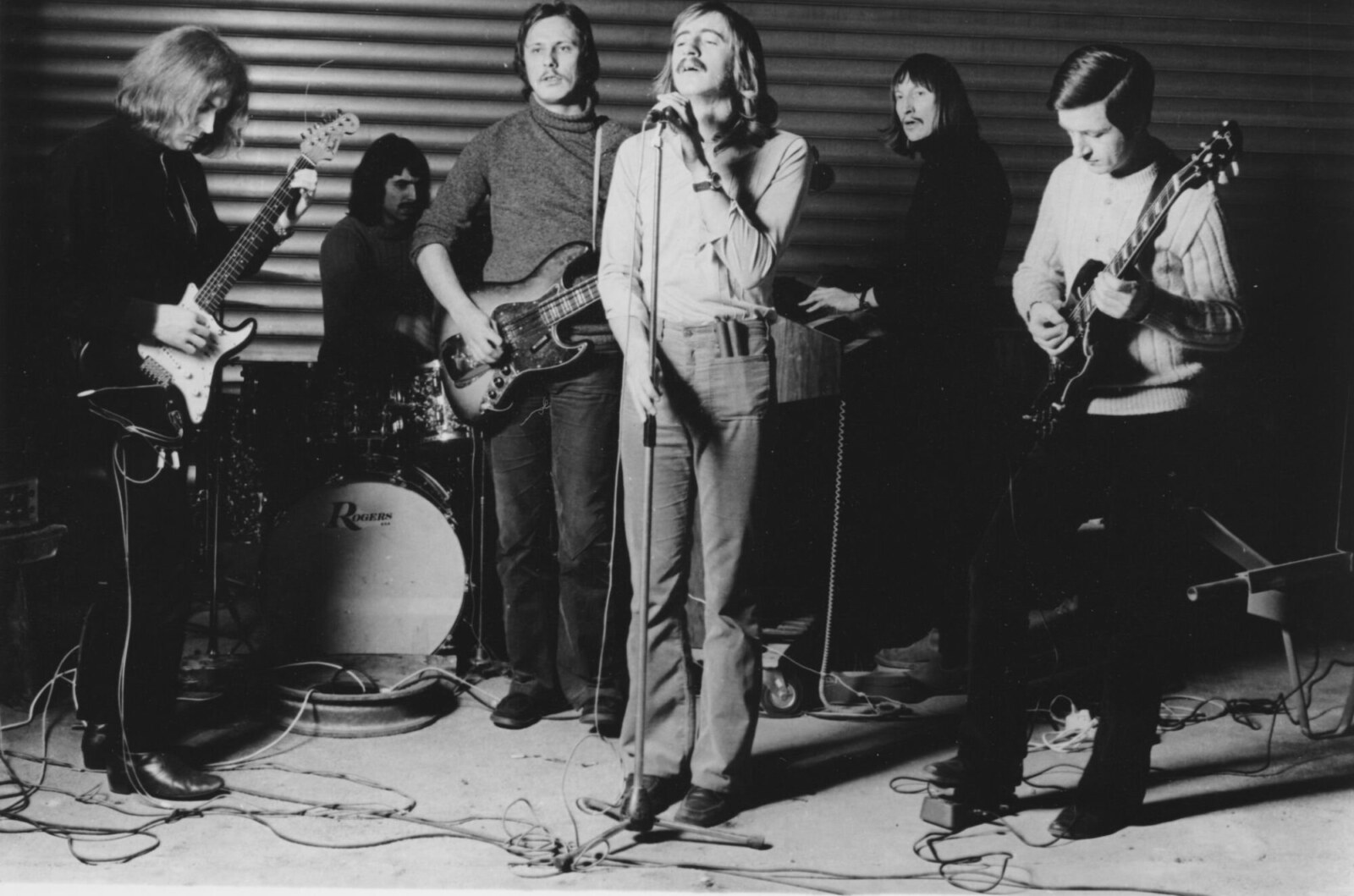
What sort of venues did Gomorrha play early on? Where were they located?
We were all professionally involved in the band and we didn’t think about where we wanted to appear. The first record with German lyrics was recorded in the Cornet Studio in Cologne. We got to know Conny Plank! He was still employed as sound engineer in the sound studio of Margot Esgens in Godorf. Our test tape sounded good to him so we arranged a meeting in the studio. This was of course only possible when Conny had the time for it. A phone call in the evening: “You can come now for 2 or 3 hours – or sometimes in the middle of the night. The first record was made in short intervals and sold by Cornet. Conny Plank was our producer. We got 0,10 DM per sold record.
What influenced the band’s sound?
The sound of the band resulted from the composition of the musicians coming from totally different fields. Ali Claudi was a jazz musician as well as Eberhard Krietsch formerly of Kurt Edelhagen Big Band. Mike Eulner played the guitar and bass. Helmut Pohl studied music and concentrated on percussion and I orientated around the sound of the Beatles. We still didn’t have a singer so I had to sing, although I cannot sing. The first record was developed under difficult circumstances.
What’s the story behind your debut album? Where did you record it? What kind of equipment did you use? How many hours did you spend in the studio?
The story behind our first album is easily explained: We simply had a big interest to make music and to me it was all the time highly interesting to experiment with frequencies, words or materials. As equipment we only had cobbled together or borrowed amplifiers and loudspeakers as well as two microphones and we worked hard to develop passable sound.
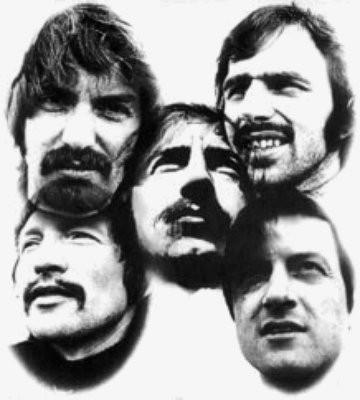
What were the influences and inspirations for the songs recorded?
The Beatles influenced me to write love lyrics for my wife.
‘Dead Land’ was inspired after seeing where the course of the mankind goes with an exponential growth since the 50’s until 2050. Up to approximately 11 – 12 billions and the recourses of the planet become always fewer, it will become quite uncomfortable. The elixir of life of the mankind is profit maximization and buying and selling “must have” as if the mankind forgot their own Creator. Many “saviors” will appear, who will give the direction of life, but don’t follow them because they will lead to the wrong direction; “Totes Land”. That is the message of this song.
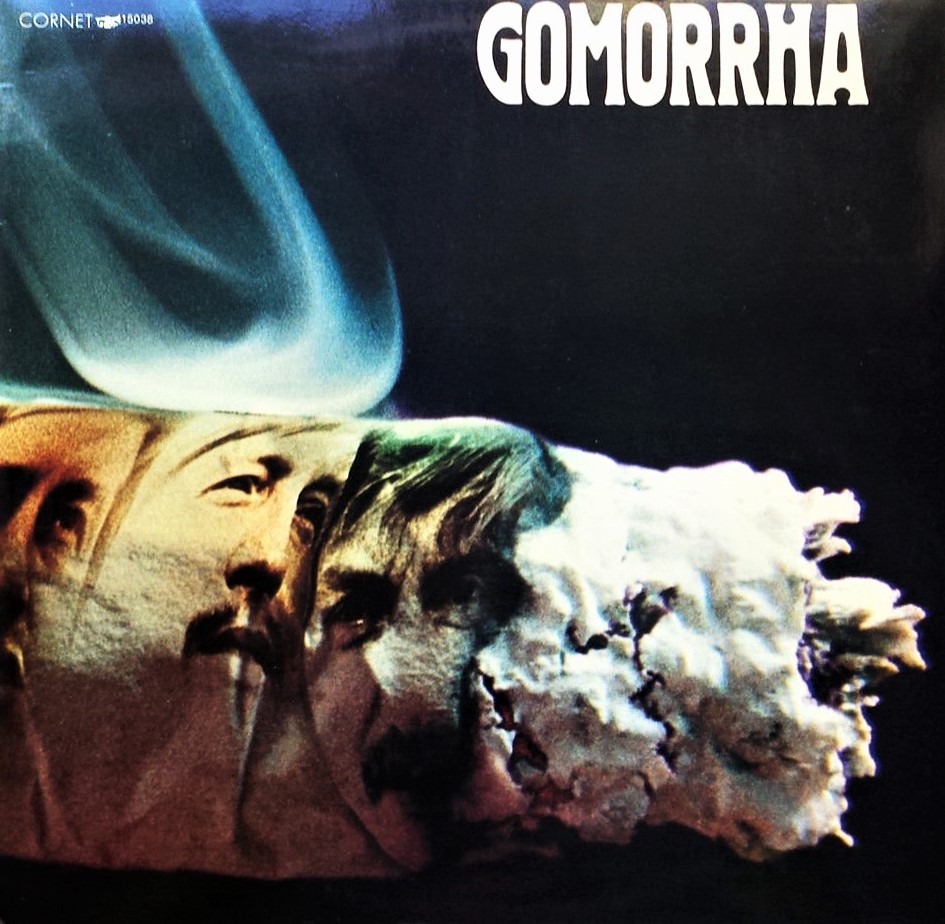
It’s really interesting what you did with ‘Trauma’. It’s basically the same album with English lyrics. Whose idea was to re-record it?
Unfortunately I can not sing and the producer Conny Plank thought we should sing the lyrics in English out of phonetic reasons. After a long search we found Peter Otten and we fully agreed to have him in the band. Peter was a lucky chance. In the song ‘Trauma’, the following is mentioned: “Love is the death of the own self. Love means the fortune of the other, the partner, is more important to me than my fortune. Love forgives everything. Love can also be emotionally consuming.” These emotions I tried to describe musically in the lyrics and improvisation of ‘Trauma’.
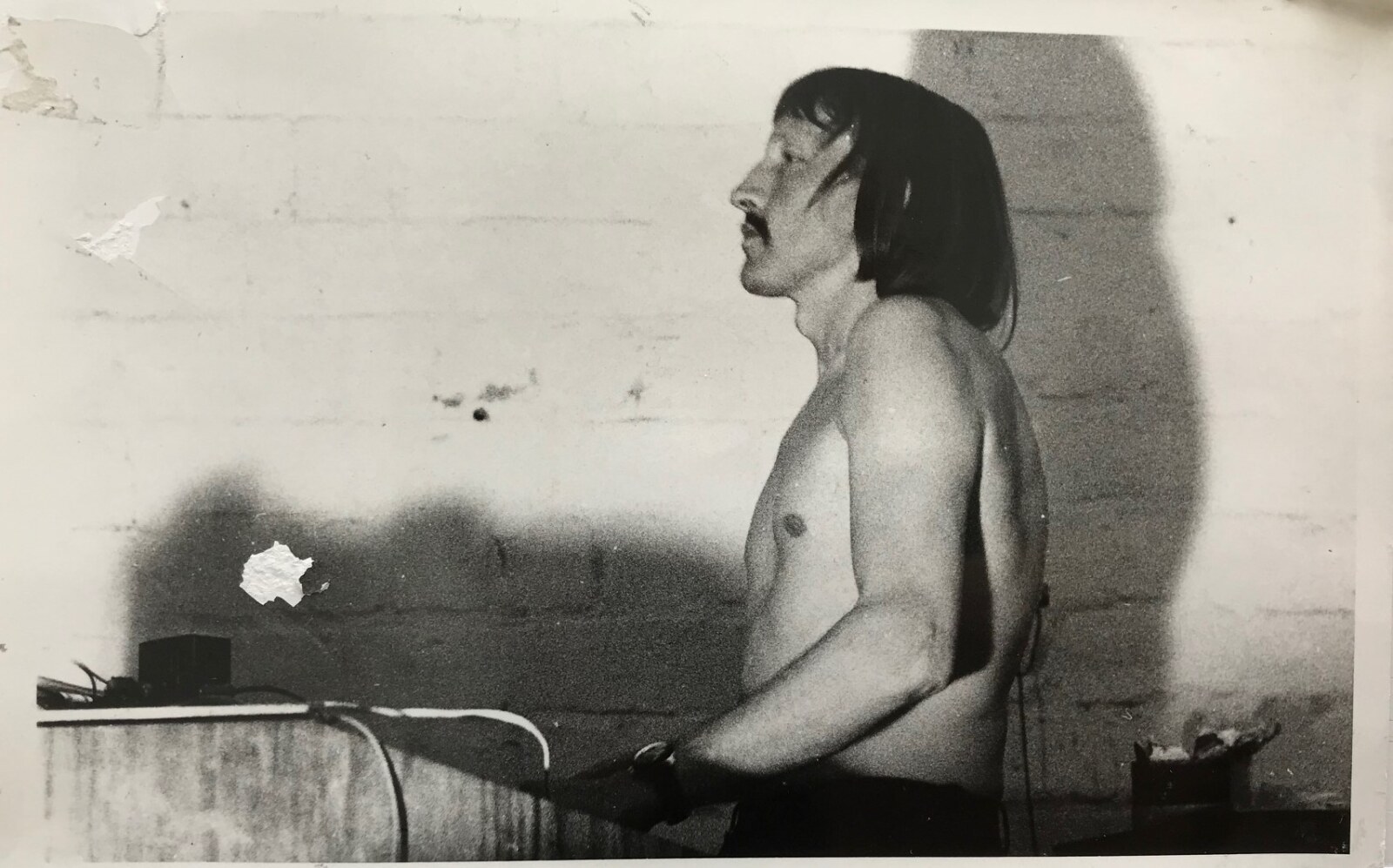
“Sometimes when you arrived in the studio it was so foggy, that you didn’t need a joint anymore”
The cover artwork is fantastic.
Those are the lips of my wife with a joint. The photograph was made by S. Himmer from the “Grafik Team Cologne”. It was in the days of the hippies. Sometimes when you arrived in the studio it was so foggy, that you didn’t need a joint anymore.
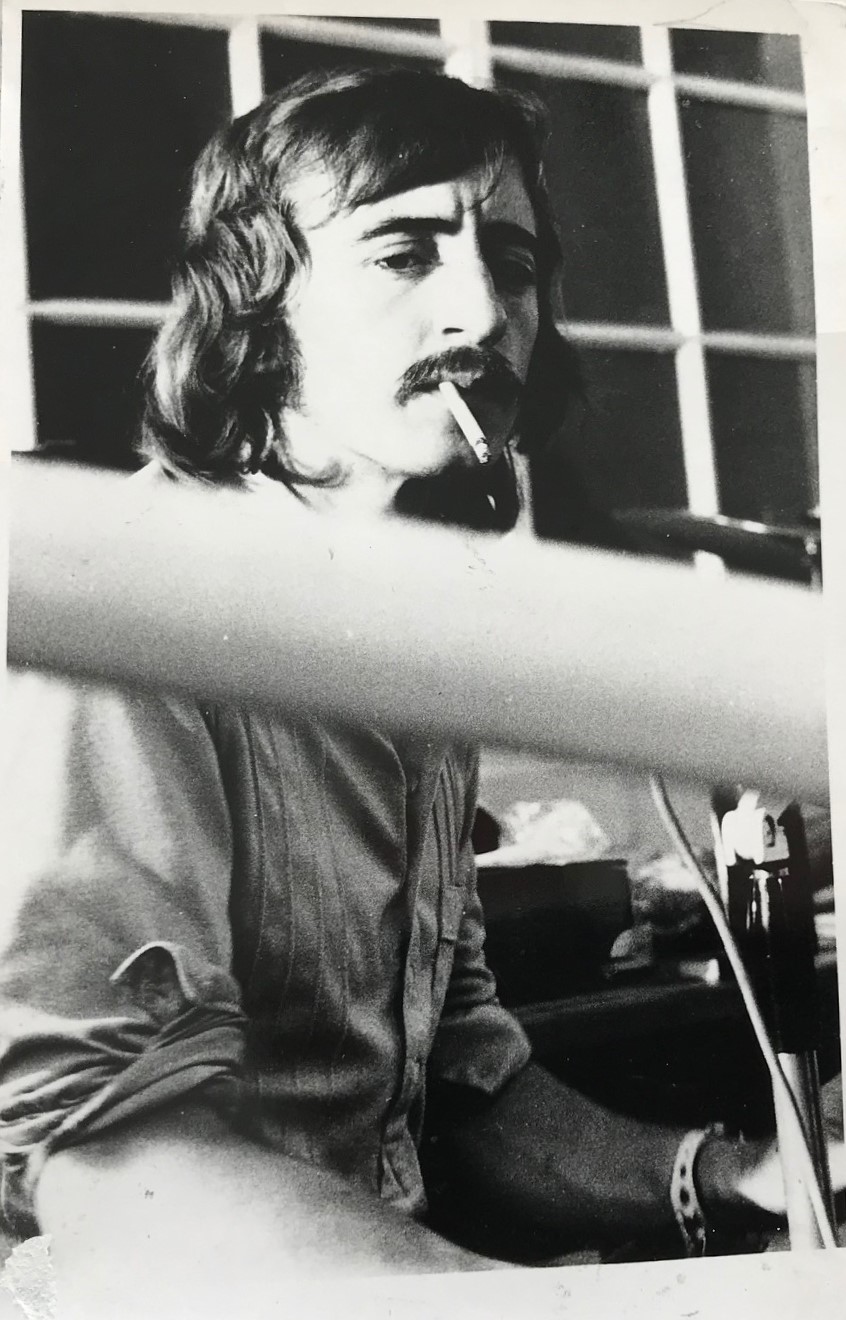
The dual lead guitar from you and Ali Claudi sound magical!
Ali Claudi played as the lead guitarist except on ‘Dance On A Volcano’ and ‘Opening Of The Sealed Book’. That was me with my Fender Stratocaster with a self-made booster, which I installed in a drilled out hole on the back with several different changes. It got the peculiar sharp sound. We experimented permanently on sound changes. Still today they ask Ali Claudi how I managed to get this sound on the guitar.
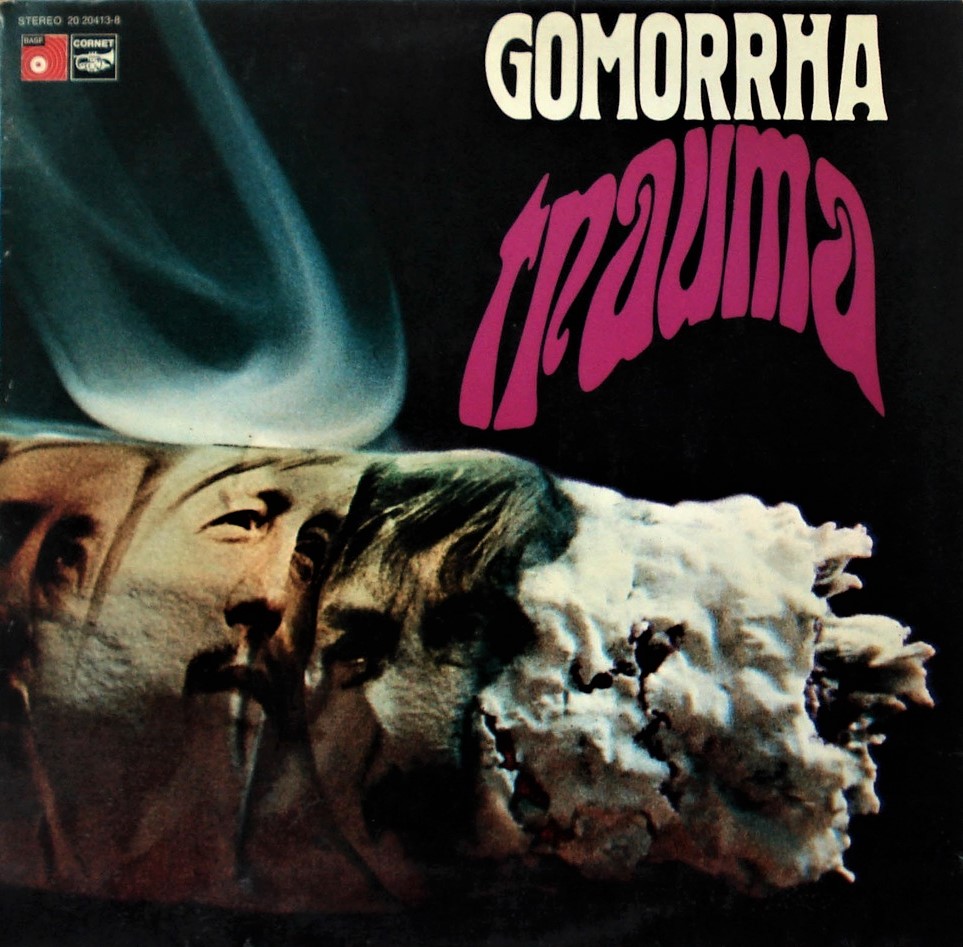
Looking back, who influenced your guitar playing the most and did influences change during the years?
We were influenced differently. Ali was influenced by Jeff Beck, Volker Kriegel and some others. I loved Jimi Hendrix, Terje Rypdal and last but not least on Jeff Beck. This combination was after all quite interesting.
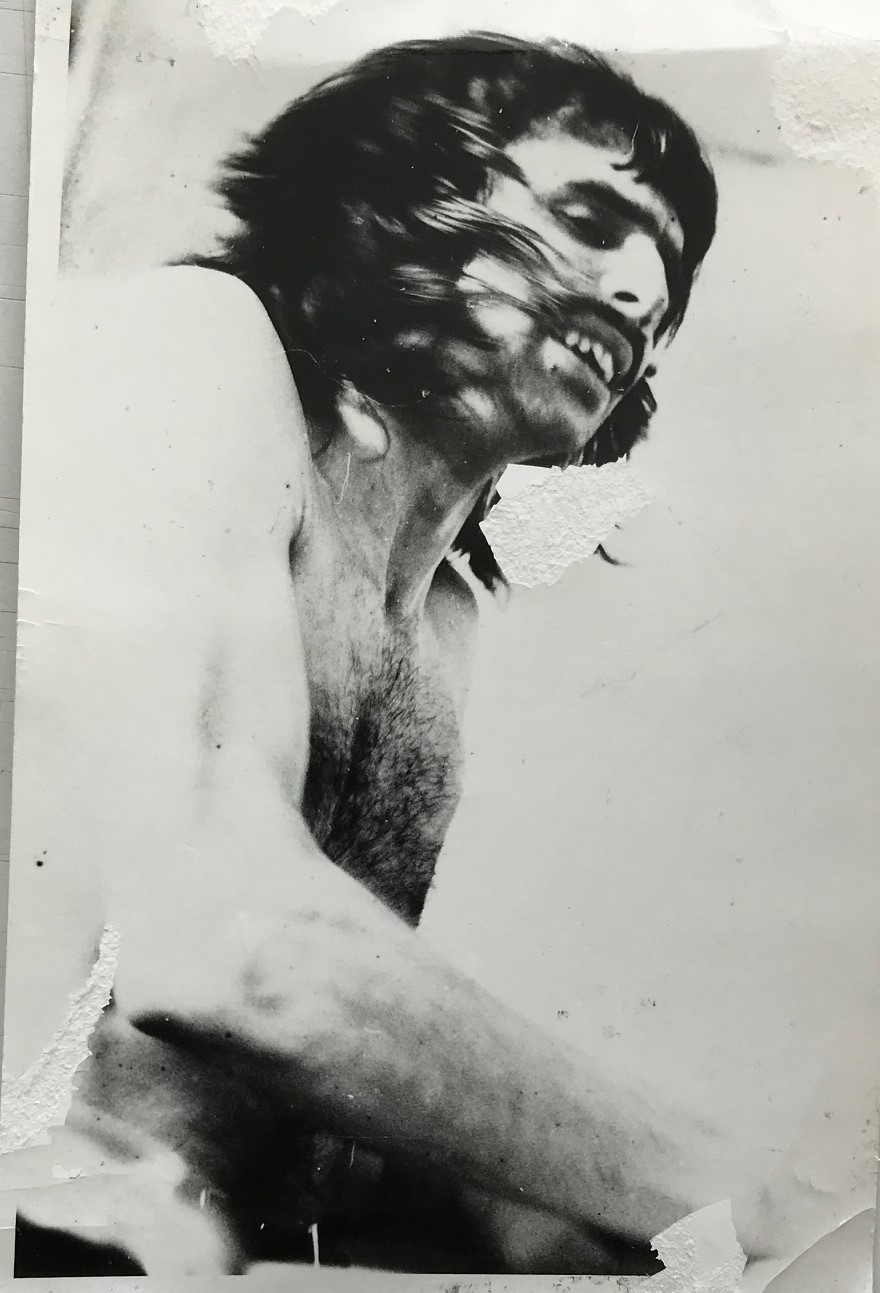
‘I Turned to See Whose Voice It Was’ had quite a different sound to it. What’s the story behind it?
The sound actually changed in our group constantly. It was depending on the lyrical content – if mighty, fierce, lyrical, dreamy or playful. For example the sound for ‘Dance On A Volcano’ was meanto to be essentially harder and sharper. As the most comforting message to the people I adapted the text from the ‘Revelation of the Johannes’.
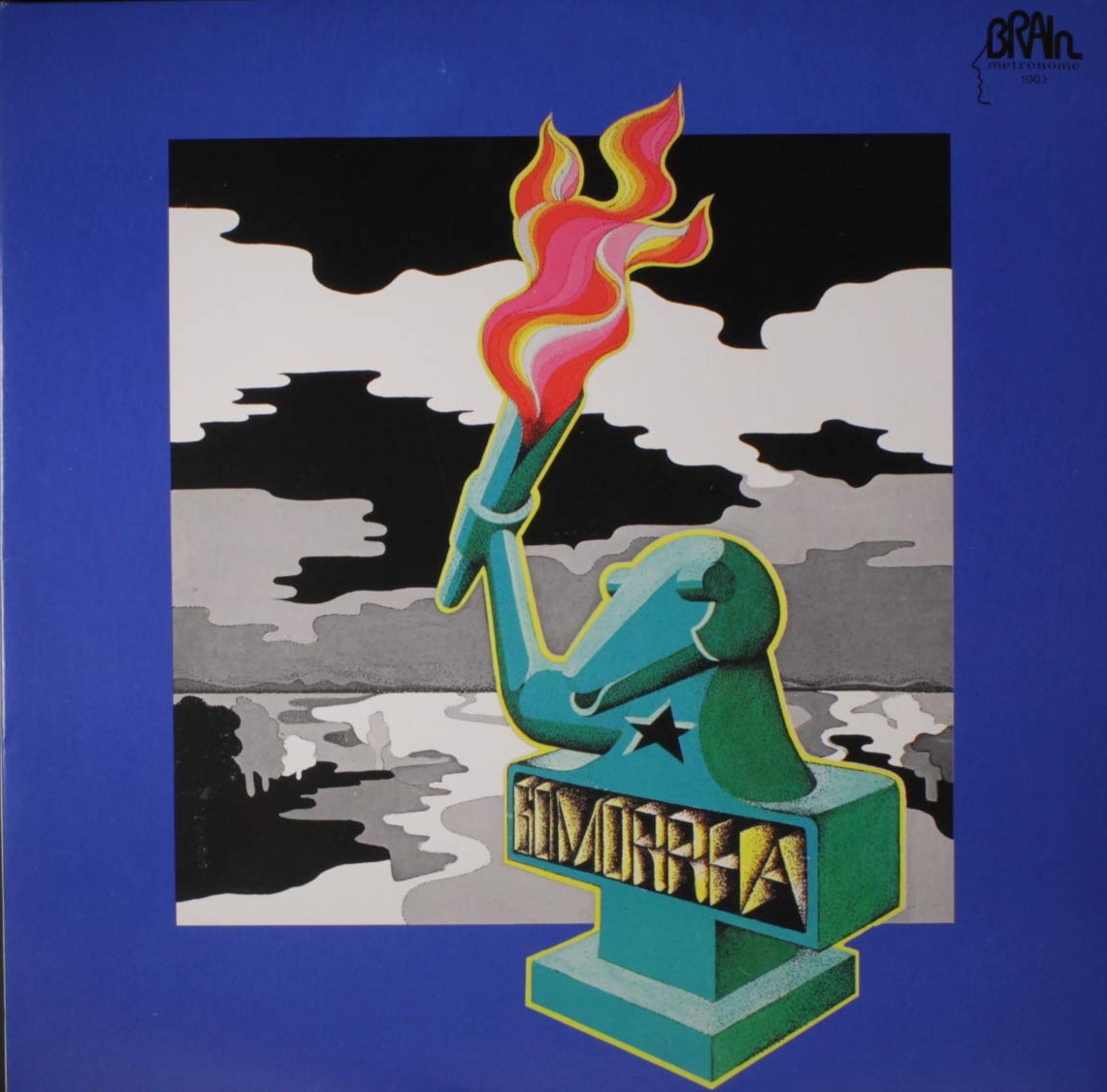
Was there a certain concept behind the album?
The view of our small spaceship earth with its resources and the exorbitant increasing population with their desires was the impulse for this album.
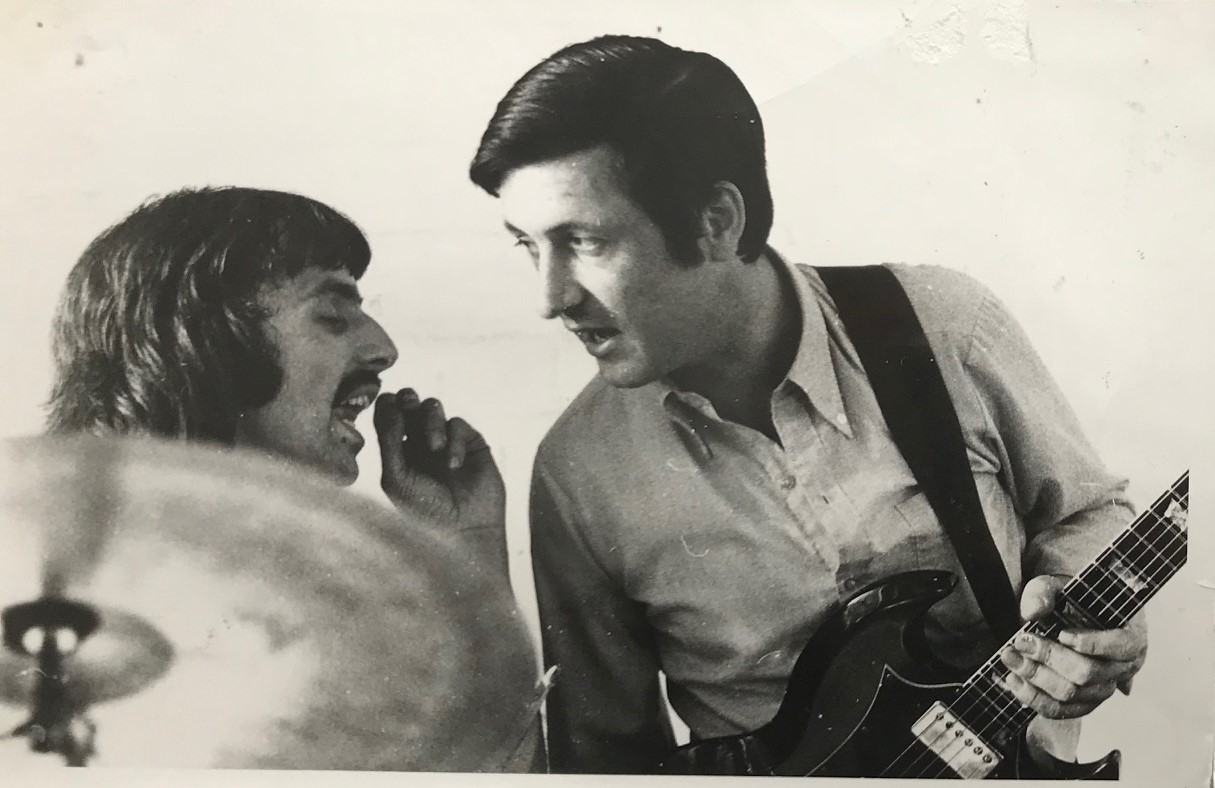
What happened next? Was any member involved with music after Gomorrha?
After recording ‘I Turned To See Whose Voice It Was’ I realized that my talent was not enough. I wasn’t able to play what I had in mind. We were betrayed from the beginning of the recordings by the producer and the publisher. I thought the music business was somewhat too dishonest. Contacts weren’t kept, royalties disappeared. Moreover during our appearance in the “Fabrik” in Hamburg together with the Scorpions and Jane for the label Brain, the plug was pulled out of the loudspeakers during our solo improvisations. We also had to argue for our payment. After the whole adversities I dissolved the group in 1972. I packed my beloved Stratocaster into the case and didn’t unpack it until today. I will bequeath it to my children. After that I dedicated myself to the architecture, because the orders increased more and more and I love this work so I dedicated myself to this profession.
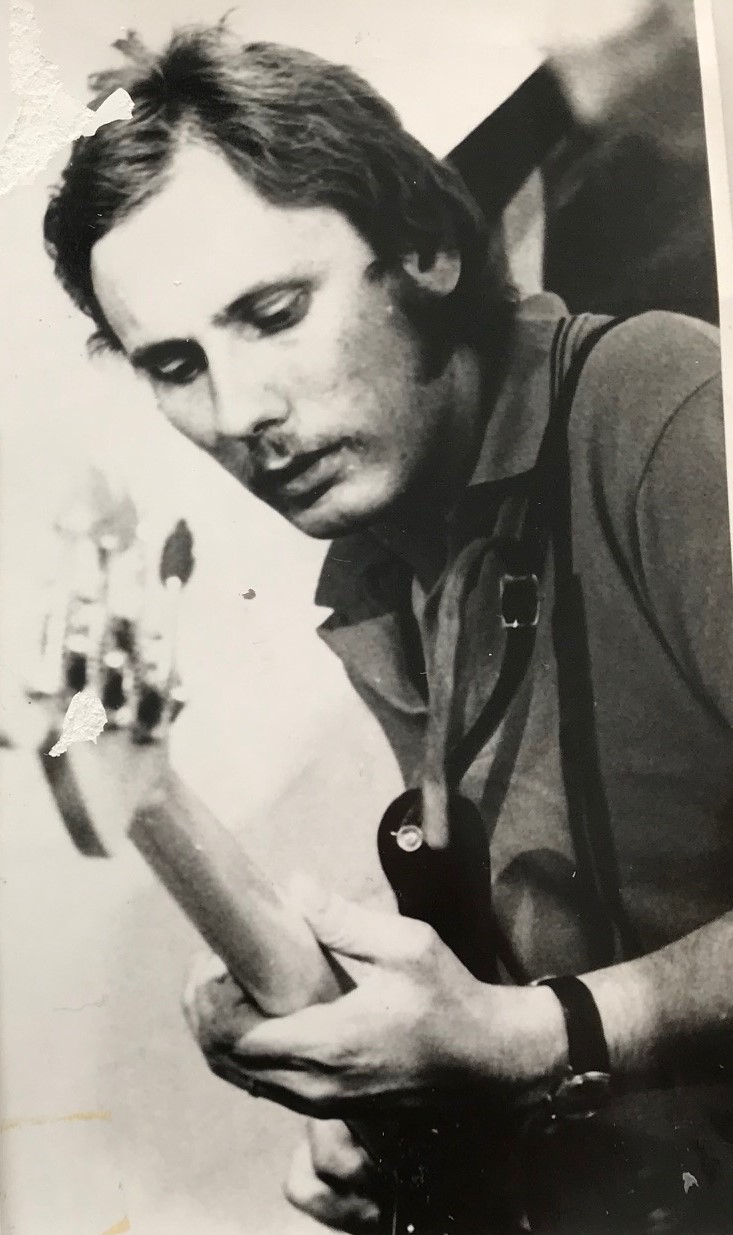
Here at home I still play today the organ, even with rhythm an orchestra accompaniment. The electronic system makes it possible. Ali has his own group and plays and records albums. Eberhard Krietsch, our dream organist unfortunately died a few years ago. Mike Eulner has a guitar school and writes guitar textbooks. Peter Otten sings now and then in a blues group and is retired and enjoys his life. Helmut Pohl was as music teacher a few years in Nigeria but is now back again and has a band and appears now and then publicly.
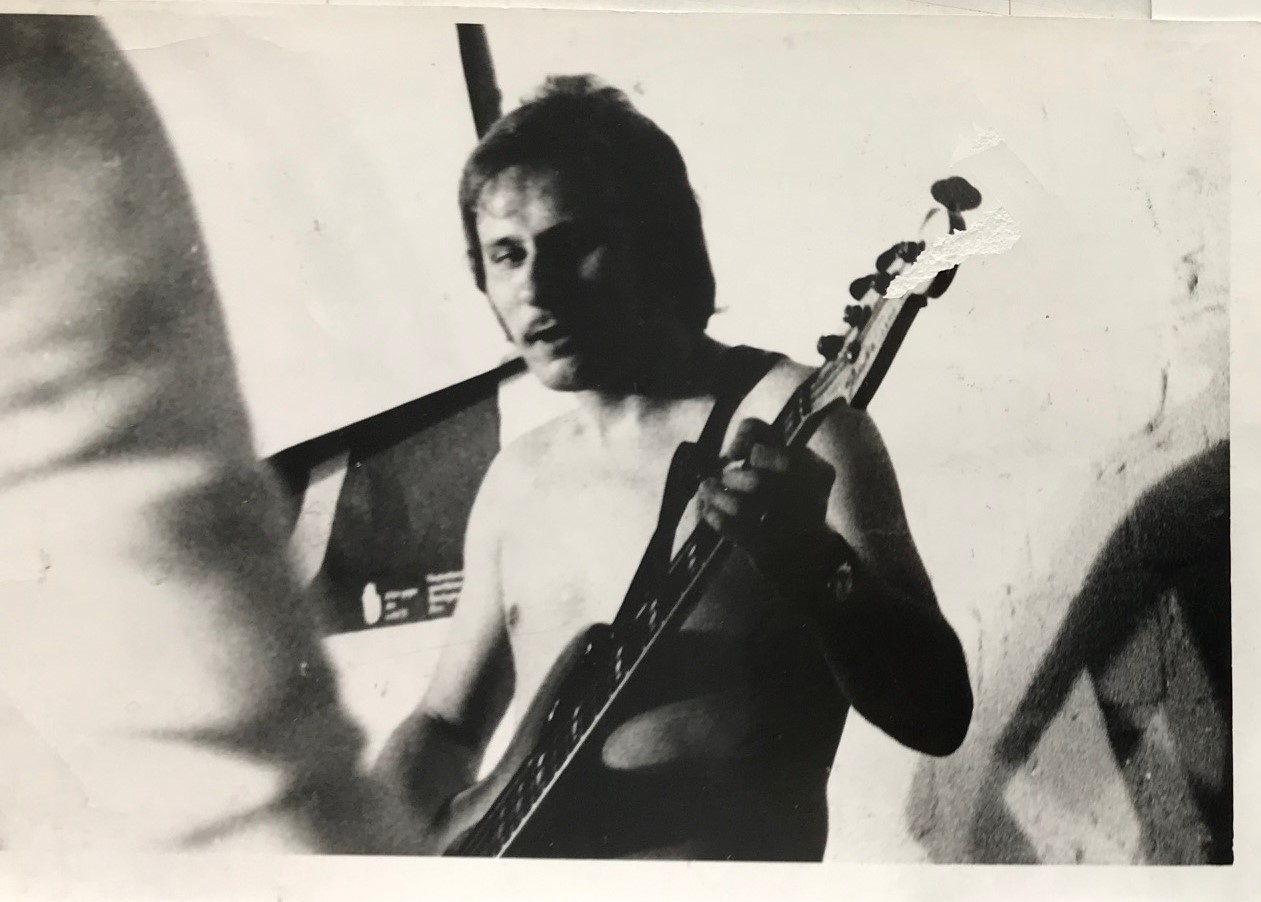
Would you like to discuss what currently occupies your life? You’re a successful architect…
Well, in August I will be 83 years old and I am very fine, the last architect order for a customer I transacted 2014 -2015 and since then I dedicate myself to it.
Looking back, what was the highlight of your time in the band? Which songs are you most proud of? Where and when was your most memorable gig?
The best moments with my band were all the rehearsals and musical experiments and the pleasure to make music. Which songs I like most is difficult to answer. ‘Dance On A Volcano’, ‘Opening Of The Sealed Book’, ‘I Turned To See Whose Voice It Was’ … We never wanted to be a band with a manager. We just met out of the pure pleasure to make music. The greatest appearance in my opinion was perhaps in the “Kölner Weißhaus” with the “Amsterdam Lightshow” – that was fantastic.
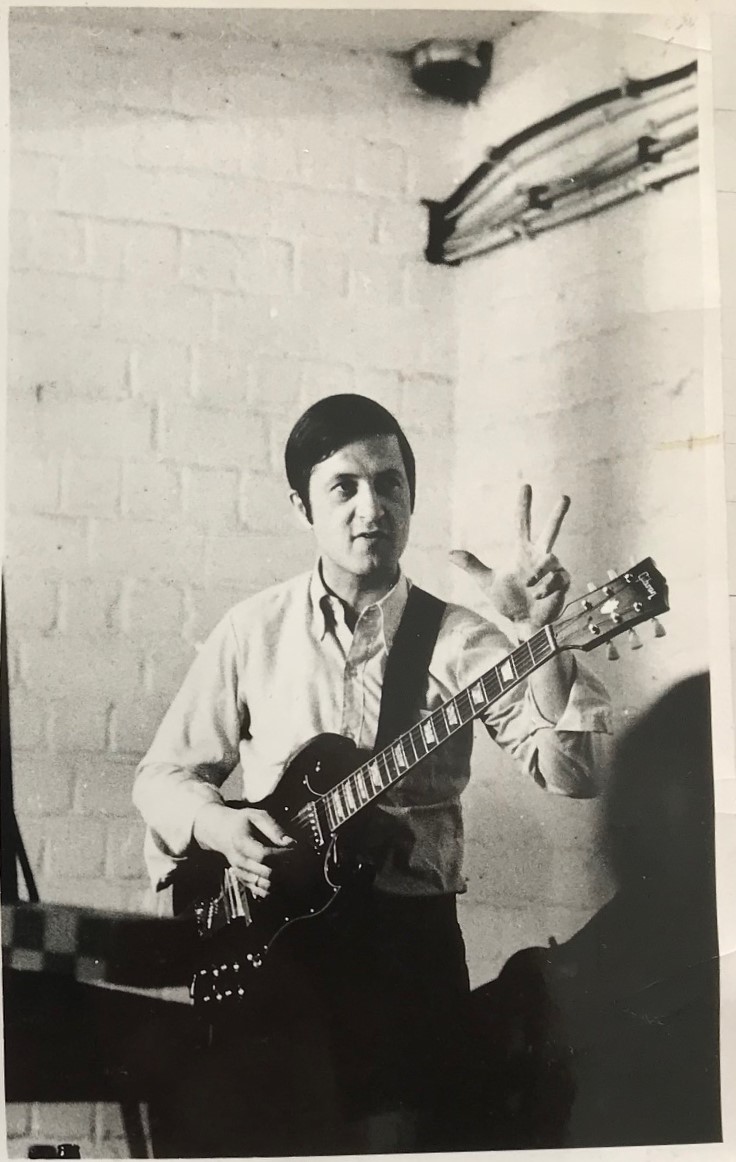
Is there any unreleased material by Gomorrha?
There are no unpublished recordings from Gomorrha. Abi and Esther Ofarim wanted to engage me as a songwriter, but I rejected.
Are you still in touch with other members? Is any member still involved with the music?
I am still in contact with the other former band members via telephone. I plan a meeting in the future here in my garden.
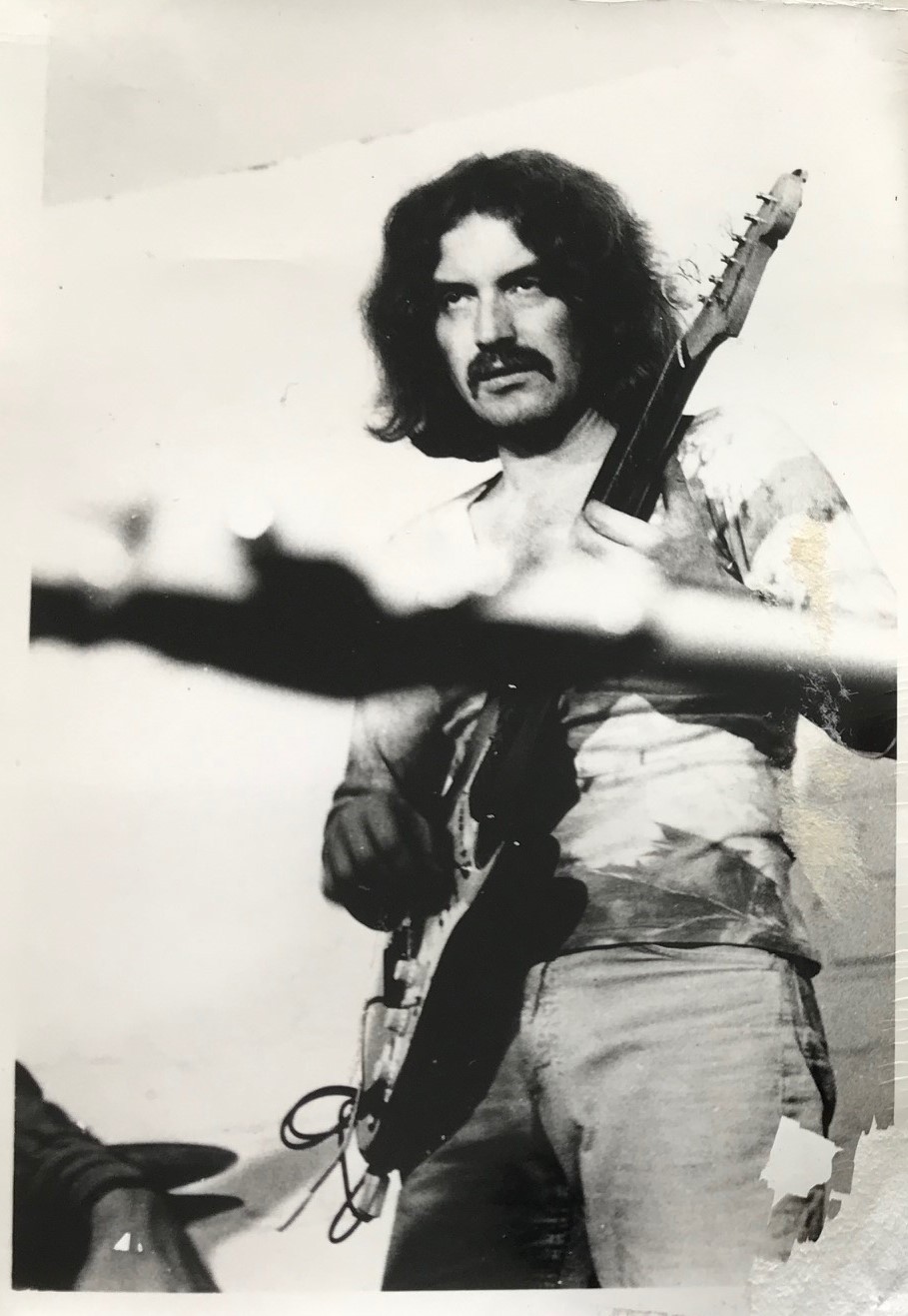
Thank you for taking your time. Last word is yours.
Dear Klemen, I am immensely pleased that you got in touch with me and that there is still an interest in our almost 50 years old albums. Some texts become yet increasingly more currently. Some critic spoke about the texts of “end of the world mood” – I however described just the reality.
For your interest in my former band I want to thank you very hearty and I wish you all the best!
Klemen Breznikar
Longhair Music Official Website

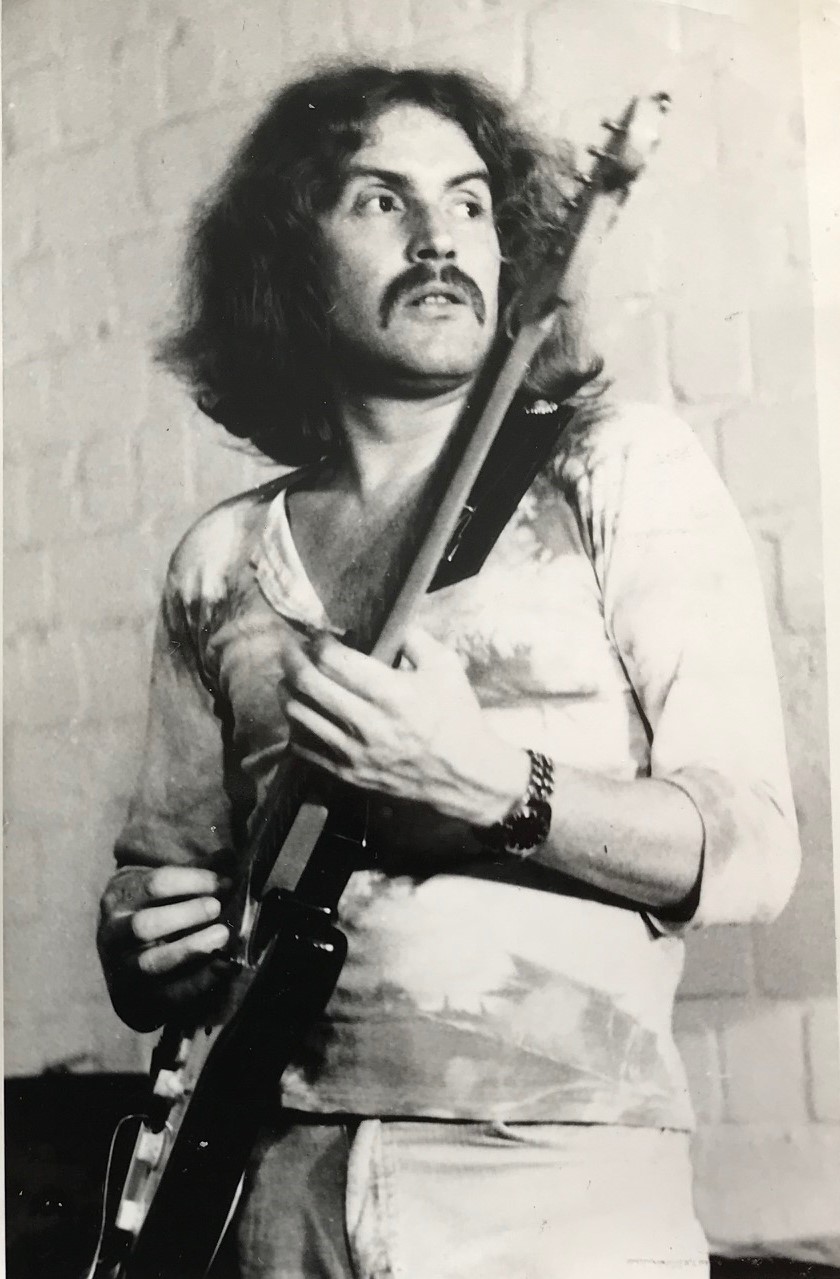



Thank you Klemen